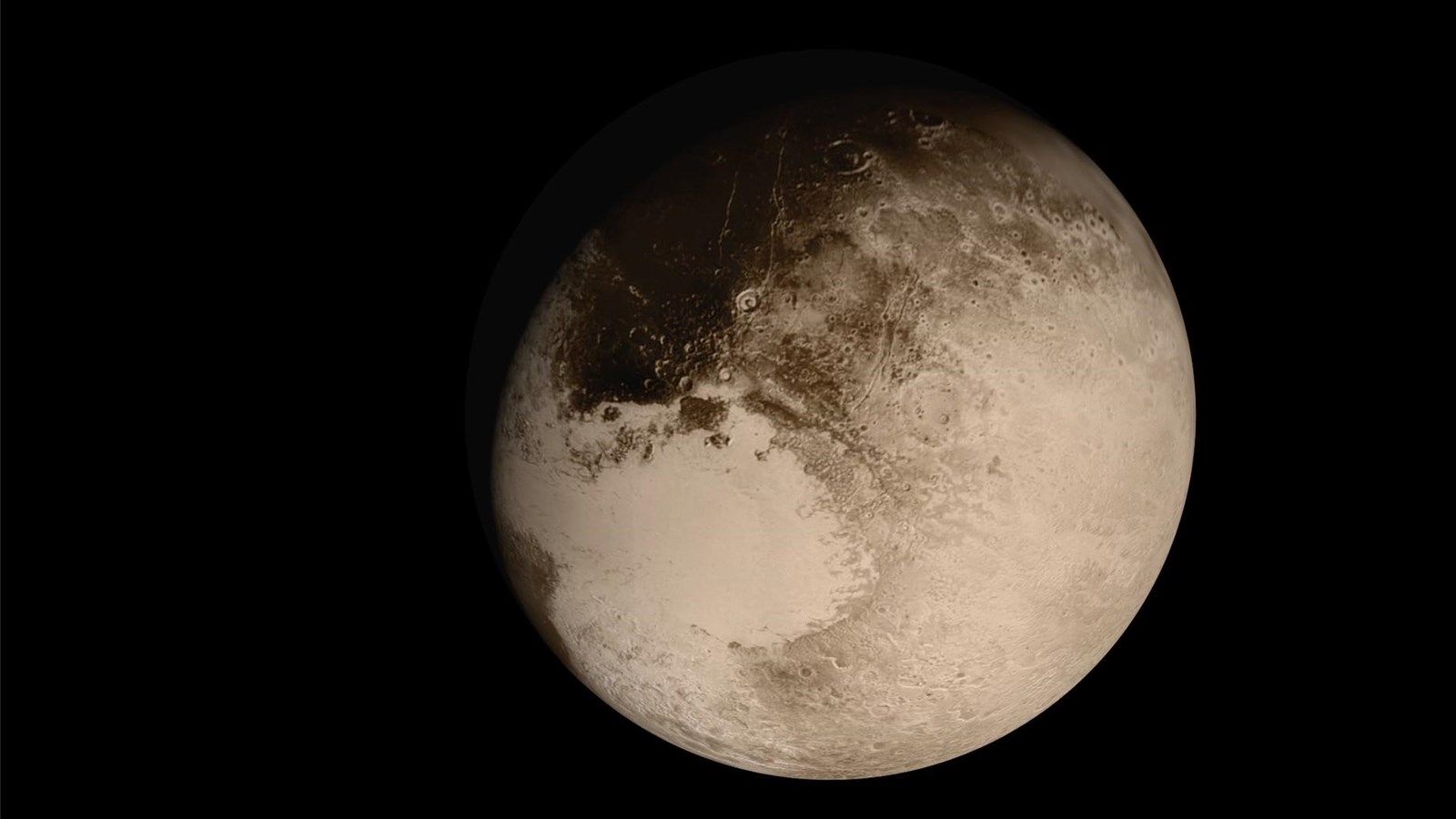Abstract
- Pluto is not alone—it is a part of the Kuiper Belt with probably a whole bunch of different planet-sized objects.
- As a result of Pluto hasn’t achieved gravitational dominance in its area, the Worldwide Astronomical Union’s 2006 definition of a planet means it now not qualifies.
- Pluto’s classification change stays controversial, with critics difficult the voting course of and planetary fanatics struggling to let go of their long-lived understanding of the Photo voltaic System.
Individuals’s profound reference to the Photo voltaic System led them to really feel a outstanding sense of sympathy for Pluto when it was demoted to a dwarf planet in 2006. However why was it reclassified, and why did this trigger a lot controversy?
Pluto Has Firm
For 76 years, Pluto was thought-about the ninth planet of our Photo voltaic System, 3.7 billion miles from the Solar.
What’s extra, for the primary 62 years following its discovery in 1930, Pluto was considered alone, a distant physique of ice and rock in an unlimited abyss of near-nothingness. Nevertheless, in 1992, David Jewitt and Jane Luu found the primary celestial object within the outer Photo voltaic System other than Pluto. This confirmed pioneering astronomer Gerard Kuiper’s suspicions that the formation of the Photo voltaic System resulted in a disk of particles past Neptune, our eighth planet.
In truth, Pluto kinds solely a tiny a part of what scientists at the moment suspect could be a whole bunch of hundreds of objects referred to as the Kuiper Belt. Pluto’s shiny, refractive floor meant that it was simpler to identify in mid-century telescopes than many different Kuiper Belt Objects (KBOs), which is why it was the primary object within the Kuiper Belt to be found.
The next discovery of Eris in 2005 sparked critical conversations concerning what constitutes a planet. Beforehand, scientists thought Pluto was the one planet-sized KBO, so they’d no motive to problem its standing. Nevertheless, since Eris is comparable in measurement to—and higher in mass than—Pluto, scientists began to appreciate that we would find yourself having dozens, if not a whole bunch, of plenty referred to as planets as we uncover extra KBOs.
Because of this, the California Institute of Know-how’s Professor Mike Brown, who led the crew that discovered Eris, has since been named “the person who killed Pluto.”
The Standards for Being a Planet Modified
Apprehensive that we would find yourself with too many planets within the Photo voltaic System with out clearer parameters, the Worldwide Astronomical Union (IAU)—the globally acknowledged group for assigning names to celestial our bodies—outlined the planetary standards throughout its 2006 Common Meeting. So as to be named a planet, an object should:
- Orbit the Solar,
- Have sufficient mass to realize hydrostatic equilibrium (in different phrases, develop into rounded in form), and
- Clear its orbit path of different our bodies in its neighborhood.
Since Pluto is surrounded by many different KBOs, it hasn’t achieved gravitational dominance in its area. Because of this, it would not fulfill criterion 3, which means it may well now not be categorised as a planet. As a substitute, Pluto is taken into account a dwarf planet.
|
Yr |
Pluto Timeline Occasion |
|---|---|
|
1930 |
Pluto was found by Claude Tombaugh. |
|
1951 |
Gerard Kuiper speculated about objects past Pluto, and these objects had been named the Kuiper Belt. |
|
1992 |
David Jewitt and Jane Luu detected the primary KBO other than Pluto. |
|
2005 |
Eris was found by Mike Brown. |
|
2006 |
Pluto was downgraded to a dwarf planet after the AIU offered a modern-day definition of a planet. |
Controversy Stays
Whereas this determination might sound minimize and dried, some scientists argue that Pluto is not the one physique that ought to be reclassified based mostly on the ultimate of the three standards. For instance, you may justifiably argue that our planet has not cleared its path solely, as there are mentioned to be over 30,000 near-Earth asteroids.
Maybe much more controversially, when the IAU proposed the brand new definition for members to vote on in 2006, as a result of the vote was on the ultimate day of the Common Meeting in Prague, and most of the scientists needed to go away early to catch their flight again house, solely 10% of the two,700 attendees remained to have their say. Pluto defenders argue that the end result would have been very completely different had extra folks voted.
Returning to folks’s overriding feeling of sympathy that I discussed earlier, many people grew up understanding that Pluto was the Photo voltaic System’s ninth planet, and we really feel that it has been unfairly focused within the IAU’s fashionable definition of a planet. Certainly, I fondly bear in mind being taught some mnemonics at school that helped me bear in mind the order of the planets within the Photo voltaic System (my very easy method: just set up nine planets), and I am nonetheless not fairly able to give you a brand new one which reductions Pluto.

Associated
I’ve Watched Many Meteor Showers—Here’s How You Can Too
There’s extra to our sky than constellations and planets.

